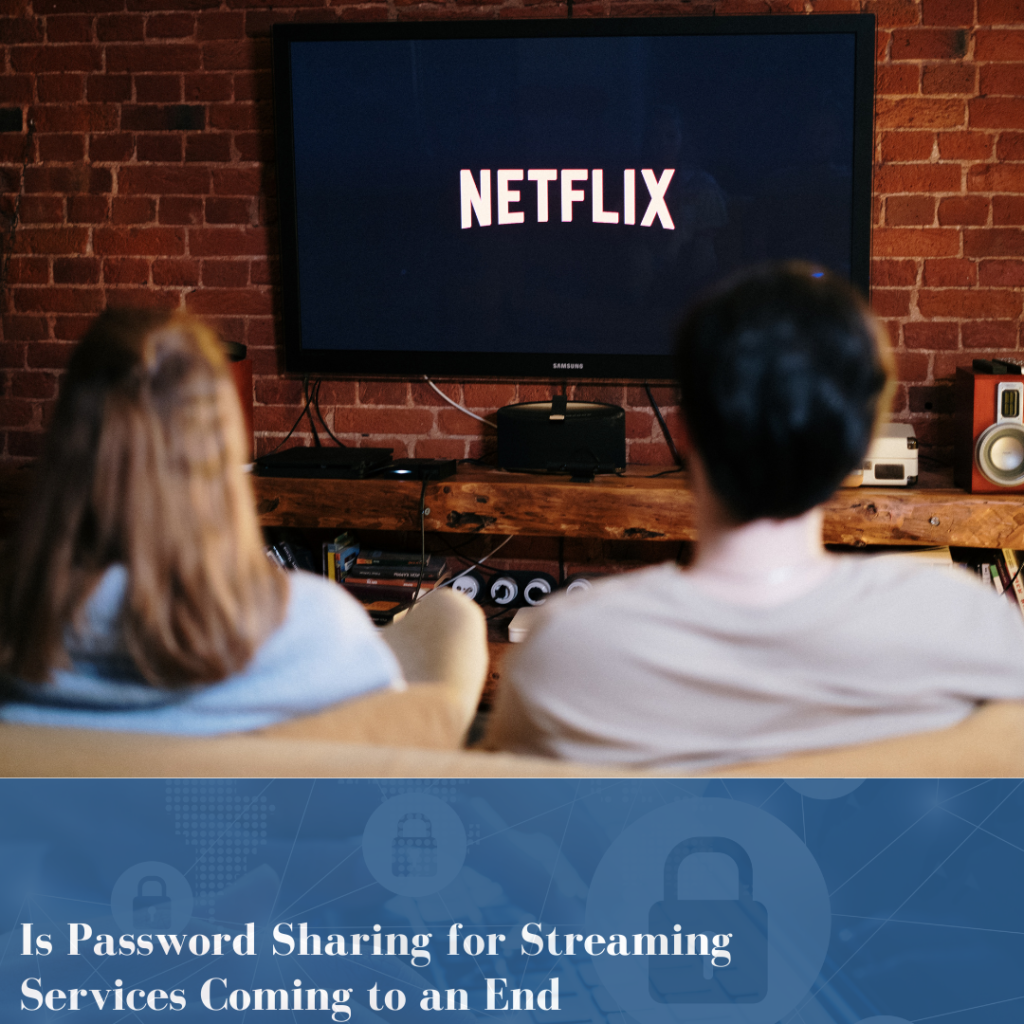
Are you a cord-cutter? Have you done away with cable completely? What streaming services do you use?
Streaming services like Netflix, Amazon Prime, Hulu, Disney+, and more are highly popular these days. Streaming is personalized, convenient, and affordable. These streaming services are also growing with new players coming on the scene left and right, like the recent launch of HBO Max & NBC’s Peacock. It seems like every network is getting in the game.
How do you keep up with it all? Do you have your own account for all the streaming services? Or do you share passwords with friends & family? It is more common than you may think and is a larger issue than you can imagine.
What is password sharing?
Password sharing is when you set up an account on any streaming service and then share the login credentials with a family member or friend. Vice versa, when someone else sets up an account on a streaming service and shares the login credentials with you. We have often heard of trades, as an example, when you set up an account on Netflix and share the password with your sister, and in turn, she sets up a password on Hulu and shares the password with you.
How is password sharing impacting the companies?
Password sharing impacts the streaming companies much more than you may believe; everything adds up in the end. cordcutting.com just released the “Subscription Mooching: 2021 Annual Report.” They found that steaming has grown significantly in the U.S. over the pandemic, raising from 168,605,114 (68% of all U.S. adults) in 2020 to 214,256,214 (82% of all U.S. adults) in 2021. “About 88 million streaming accounts are “borrowed” from people outside the household of the watcher.” cordcutting.com estimates that these “burrowed” accounts are costing streaming companies around $4 billion this year. We believe we can speak for everyone when we say, $4 billion is a significant amount of money.
Will companies put an end to password sharing?
The short answer is that it seems likely. Streaming companies are working with multimedia tech companies, such a Bitmovin to gain a better understanding of the issue. What Bitmovin does is track potential password sharing issues. Bitmovin does this by tracking the number of streams per account, how many users are streaming from a specific account at the same time, and the location of those users (are they in the same location or are they dispersed). Bitmovin has made it clear that they do not provide possible solutions to the issue, they simply help the streaming companies gain a better understanding.
We recently posted on our Instagram (VSL Home Services) about new security measures that Netflix is testing, which may put an end to password sharing. This new security measure has the ability to block access to anyone outside of the same household as the account owner. When accessing the account from outside the household, this measure implements a prompt screen with a free 30-day trial to try Netflix. Users are also able to request a code that is texted to the account owner’s phone. It is still unclear how this will impact account owners watching Netflix outside of their homes.
Password Sharing Conclusion
No streaming company has come out saying that they will be putting an end to password sharing, but it is clear that they are taking a large hit financially from the act. While it looks like streaming companies will be putting an end to password sharing, only time will tell.
